CATL Scholars
Current ScholarsJump to Former Scholars 2026 – 2028
Yidi Wu’s will immerse students in the varied perspectives of the 1989 Tiananmen Protests using Reacting to the Past (RTTP) pedagogies. In this application of RTTP, students will be assigned to roles such as activists, government officials, journalists, and workers, in order to help them learn about the complex social and political landscape of the time. As part of this project, Wu will develop instructional materials to share with other educators, including collaborators at Emory University, Virginia Military Institute, The Citadel and Angelo State University. By engaging students directly with historical narratives and perspectives, the project aims to foster critical thinking, public speaking and historical empathy, deepening students’ understanding of this significant event in Chinese history. 2025 – 2027
Bitting and Merricks’ project seeks to understand how integrating STEM education with service-oriented projects that address local needs can help students bridge academic knowledge with real-world challenges. By examining the impacts of community-based learning (CBL) on historically underrepresented students in STEM, their work will assess whether these courses boost students’ confidence, strengthen their sense of belonging, and encourage them to persist in STEM fields. The study will also explore how students with diverse and intersecting identities—such as first-generation students, students of color and women—perceive the value of CBL in fostering a meaningful connection between STEM and community impact. Their study will analyze survey responses and conduct in-depth interviews to understand how CBL may enhance motivation to persist in STEM fields and contribute to meaningful, community-focused work. 2024 – 2026
Amanda Chunco is interested in how faculty grading practices contribute to both student belonging and STEM identity. In her previous work, she found that faculty in one STEM department show a wide range of beliefs about grades even within this single discipline, and that students have a wide range of feelings around belonging and identity, with male students showing significantly lower belonging than female students. Her project will broaden this work to evaluate student and faculty across STEM disciplines across Elon and at Alamance Community College to determine how grades affect STEM students and whether those effects vary by student population. Her scholars project will integrate both faculty and student experiences through a range of quantitative and qualitative data. Specifically, Dr. Chunco will examine: 1) the role identity and how belonging play in supporting students to complete a STEM major, 2) how STEM faculty assessment beliefs and practices contribute to student belonging and identity, and 3) whether grading practices have differential effects on students based on race, gender, and first-generation identities. She aspires to broaden this work to evaluate student and faculty from a variety of STEM disciplines. 2023-2025
Erin Pearson, Assistant Professor of English, will work on “Connecting Literature and Professional Programs to Increase Student Motivation and Success” for her CATL Scholar project. Despite significant evidence that literature cultivates vital professional skills, many students believe it is irrelevant to their majors and lives. This project seeks to increase student motivation by emphasizing connections between signature pedagogies in literary studies, business, and health. After researching and developing classroom activities and assignments focused on cross disciplinary approaches to literature, she will run a pilot course and concurrent study to assess changes in student motivation and skills. With a team of cross-disciplinary colleagues, she will be working to create an Intercultural Pathway Certificate Program that uses humanities courses to help business and pre-health majors develop the skills integral to their future careers and society as a whole. The research as a CATL Scholar will help to reveal points of meaningful contact between the humanities and business and pre-health fields and by creating a course that can be a part of the new certificate program. This project furthers Elon’s strategic goal of building connections between the arts and sciences and professional schools through innovative cross disciplinary pedagogy. 2022-2024
Chris Richardson, Associate Professor of Astrophysics, will work on “Active Learning Resources for Large-Scale Phenomena in Upper-Level Astronomy Courses” for his CATL Scholar project. His project seeks to help reduce gaps seen in upper university level astronomy courses by developing lecture-tutorial worksheets and big-data driven Jupyter notebooks (evolved from the IPython Project). Throughout this project Richardson aims to transform astronomy curriculum by addressing two specific gaps: (1) the lack of resources dedicated to intermediate- through advanced-level astronomy courses and (2) the shortage of material covering phenomena on the scale of galaxies or larger. Chris will start by developing lecture-tutorials (LTs) that focus on topic fundamentals found in well-rounded astronomy curricula such as active black holes, galaxy evolution, and cosmology. Developing LTs will play a crucial role in identifying misconceptions that inhibit student learning. Concurrently, the project will involve developing pedagogy for the use of computational notebooks enabling students to seamlessly analyze and manipulate data for large-scale phenomena and other student-driven astronomy topics of interest. Richardson’s proposed project has implications both for Elon students and beyond: Students will benefit from an astronomy classroom environment that further promotes data competency, and Richardson plans to present findings at conferences and publish tools and pedagogical materials on public platforms available to the whole of the astrophysics community. Vizcarra, C.L., Trainor, R.F., Ringer McDonald, A., Richardson, C.T. et al. (2024) An interdisciplinary effort to integrate coding into science courses. Nat Comput Sci. https://doi.org/10.1038/s43588-024-00708-2
Ketevan Kupatadze, Senior Lecturer in Spanish & Co-Scholars Ketevan Kupatadze, Senior Lecturer in Spanish, & Elena Schoonmaker-Gates, Associate Professor of Spanish, both work in the Department of World Languages and Cultures. Their CATL Scholar project, “Online Language Tools: From Taboo to Opportunity,” will delve into whether and how online language translation tools can be used to advance, rather than hinder second language (L2) teaching and learning. Their project will investigate student motivations and perspectives and involve student partners by: (1) working with two student collaborators who will be involved throughout the project, (2) trying to identify when and why students resort to online language tools through student surveys, and by (3) developing and troubleshooting new language curriculum through student feedback, classroom assignments, and measurements of student success. Through this project, Kupatadze and Schoonmaker-Gates hope to ensure L2 pedagogy is best aligned with students’ goals so that students can focus on the process of language acquisition, are rewarded for the progress they make, and don’t feel compelled to (mis)use machine translation. Additionally, they aim to transform the available online language tools from being taboo to becoming pedagogical opportunities that help cultivate a classroom culture where it is ok to make mistakes, focusing on the process and progress rather than grades.
Scholar Katie Baker, Assistant Professor of Education, will focus on a CATL Scholar project titled, “Exploring Co-Teaching in Higher Education”. The project will tap into Baker’s prior experiences co-teaching at Elon, and co-teaching within PK-12 education classrooms to delve deeper into how research-based models of co-teaching might be integrated into courses at the university level to benefit students. Baker will collaborate with colleagues from the Department of Education & Wellness to enact and explore co-teaching in courses for prospective teachers. Elon students studying as prospective teachers in the Teacher Education Program encounter co-teaching as a commonly used practice in PK-12 classrooms, but do not often experience co-teaching in their university coursework. Baker plans to enact and investigate the co-teaching practices used in school districts where student teachers will do their practicum or be employed in the future. Dani Lane, former Assistant Professor at Elon and now Assistant Professor at Western Oregon University, will collaborate on the project as a cross-institutional researcher. She will support data collection and analysis, and Baker and Lane will work to compare Baker’s new iterations of co-teaching to the duo’s previous model of co-teaching and the data collected from that round. Armed with this information, Baker and Lane will design, implement, and adapt co-teaching practice models that can be integrated into University level coursework, with feedback from students and partners. From this project, they plan to (1) affirm the need and value of co-teaching in their department and co-taught courses, (2) integrate what they learn into other co-taught courses across their universities, and (3) collaborate with partner PK-12 districts to provide joint professional development around co-teaching models and benefits. Former Scholars2020-2022
Margaret Chapman, lecturer of English | Why do we grade? Transforming student learning through understanding faculty grading practices English lecturer Margaret Chapman proposed a project aiming to transform student learning through the understanding of how faculty grade. Despite the research suggesting that grading practices inhibit student learning, faculty receive almost no preparation in alternative assessment strategies and theories. As a CATL scholar, Chapman will survey cross-disciplinary faculty grading practices, investigate how students and faculty understand those practices, and use her findings to enable faculty to experiment with alternative grading practices in order to improve student learning. By comparing faculty and student experiences of grading practices, Chapman will reveal points of agreement and disagreement, critical to help faculty implement any new pedagogical strategy, especially for grading.
Andrew Greenland, assistant professor of economics, will focus on Teaching Replicable Research in Business and Economics by developing, testing and making publicly available an online video tutorial that is designed to re-enforce concepts in introductory statistics, data analysis and econometrics courses and to teach students interested in business or economics how to conduct a replicable research project. To ensure that this resource is accessible to the broadest set of faculty and students, this tutorial will be scaffolded to allow users to progressively build on technical skills in three of the most commonly utilized statistical software packages/programming languages used in these fields — Microsoft Excel, Stata, and R. By presenting the same material in parallel across multiple languages Greenland’s tutorial will serve as a sort of “Programming Rosetta Stone,” allowing students with training in Excel to work through an identical exercise in a new language. 2019-2022
Assistant Professor of English Kevin Bourque’s project aims to rearticulate the relevance of literature to a 21st-century curriculum and to reshape the core literature requirement at Elon accordingly. In its first year, the project will survey literary instruction nationally, with special attention to contemporary problems literary skills can help address: such as civic responsibility, feeling, affect and the processing of emotion, and pressing contemporary issues. Based on these findings, the project will develop guidelines for the effective and innovative teaching of literature, including, a process for vetting first-year literature courses, a guide for instructors, and a series of workshops, as well as a co-authored pedagogical article with a student research assistant.
Brandon Sheridan, assistant professor of economics, plans to improve student-learning outcomes by using objective classroom data provided through a new software tool (DART) to provide feedback to instructors on how our perceptions of the amount of active learning happening in the classroom compare to reality. The hope is that with objective data instructors who have voluntarily adopted active-learning methods will have additional incentive to increase their use of active-learning strategies. Sheridan’s project will (1) collect data on active learning, (2) administer surveys of instructors and students about their perceptions of classroom learning, and (3) synthesize this information into recommendations and guidelines for a self-directed active-learning accountability structure. 2019-2021
Doug Kass, assistant professor of communications, will focus on the High-Impact Inclusive Classroom. Building on a Diversity and Inclusion Grant project, his project aims to use inclusivity as the fuel for a more motivated, more diverse, more cultured and more expansive approach to learning. Starting first with a pilot course, Kass will redesign group and individual assignments to create opportunities for every student to participate by bringing in a perspective, interest or identity about which they feel strongly. He will craft these assignments to build on existing choice and agency strategies, seeing how they can be amplified through the lens of inclusivity, toward the goal of creating a more dynamic inclusive classroom. 2018-2020
Aumiller will incorporate student-faculty partnerships in a modern dance technique class. Her project will use inquiry-based movement education practices from the Franklin Method to encourage an active role in dance education and student development. The project will emphasize practice-based movement research through movement laboratories as a mode for high-impact collaborative educational practice. Aumiller, Renay L. (2021). Decentering Power: Students as Partners in Dance Education. Teaching Artist Journal, 19:1-2, 49-66, DOI: 10.1080/15411796.2021.1972765
Morrison will study the effects of nature pedagogy (forest schools and school gardens in particular) with university students in an undergraduate course and elementary teachers in two local schools. In addition to receiving support to enhance EDU 431 Environmental Education and provide professional development workshops at Eastlawn Elementary and South Graham Elementary, Morrison will be collecting data from Elon students and elementary teachers as they learn to teach with and in nature.
Duvall and Hutchings will facilitate multiple teaching styles in the same course, rather than viewing the issue of teaching and learning style (lecture, “flipped” classroom, etc.) as an “either or” proposition that forces us to choose a primary approach. They will develop Scrumage, an approach that has shown early promise in providing students choices about pedagogy. They will also analyze and disseminate the results of their project in pedagogy-focused literature as well as give workshops for other educators to employ and further refine the technique in their classrooms. 2017-2019
Windham’s project focuses on turning his earlier SOTL research on language learning into broader classroom practice around teaching literacy, defined in the department as “the ability to use language in specific situations to fulfill specific social purposes.” His project focuses on practices of teaching literacy that are “grounded in literacy theory and empirical evidence from student work,” and in ways that should prove transferable to other language courses. In his project, Windham will fundamentally redesign grammar instruction and testing in a way that helps students recognize why, when, and how to use particular linguistic structures, with a focus on critical analysis of culture and the self. He will involve students as native speaker peer mentors and as part of his assessment loop. 2016-2018
Franzese will work with a group of faculty partners to evaluate the impact of contemplative pedagogies on student well-being and learning engagement. Specifically, her project will examine whether the infusion of positive psychology strategies and contemplative teaching practices into a variety of courses and disciplines leads to an increase in students’ in-class engagement and overall well-being. Assessments will be implemented at specific points throughout the semester in faculty partner classrooms (in courses both with and without the infusion of contemplative practices) to measure the impact of the contemplative pedagogies and positive psychology strategies.
Glasco will infuse introductory French courses with a focus on social justice issues related to the Francophone world. Beginning language courses often provide students with a cursory introduction to cultural aspects of the language, which sometimes inadvertently serves to perpetuate stereotypes and racism. By using a social justice lens for both language and culture instruction, Glasco aims to integrate cross-disciplinary learning, project-based service learning, and undergraduate research in her classes.
Weidenfeld will develop a Reacting to the Past game simulating the debates in the First Federal Congress concerning the Bill of Rights. Working with student partners, Weidenfeld will conduct research and write participant roles. Once complete, the game will be piloted in a variety of settings, including classrooms at Elon and other universities, and at national conferences. 2015-2017
Essary will incorporate into both upper- and lower-level language courses the transcription, translation, and interpretation of documents from Italian archives. These activities will complement traditional textbook content and engage students in the application and identification of cultural themes, grammatical structures, and vocabulary from real-world, historical situations. Student engagement with document analysis will continue beyond the classroom in monthly conversation sessions in the target language on a specific document. These paleographic activities will allow students to encounter the culture and heritage of the Italian language through both scholarly inquiry and immediately practical speaking exercises.
Gordon will explore best practices for implementing intellectually rigorous, multimodal assignments—ones combining writing, visuals, sound, and other modes of communicating ideas—in the classroom. The project will focus on addressing the challenges faculty members currently face when assigning multimodal projects, including creating learning objectives, employing appropriate scaffolding, and determining effective grading criteria. After analyzing current scholarship and examples of multimodal writing, Gordon will create a web-based resource of models and strategies for faculty members to use when incorporating multimodal assignments into their courses. Gordon, Barbara L., Sarah O. Alpert, and Christopher R. Leupold. (2019). Students’ perception of difference in traditional vs. multimodal assignments: A call for closer consideration. Journal of Teaching Writing, 34(1), 43-79.
Uno will further develop and evaluate a service learning section of Human Physiology (BIO 264) involving Elon students and Western Alamance 6th grade students. Undergraduate students will develop inquiry-based interactive projects to bring hands-on learning to middle school students, the goal of which is to promote science literacy both on campus and within the great Elon/Burlington Community, and to develop in undergraduate students the process-oriented thinking and communication skills necessary for future careers in health science. 2014-2016
Kircher will focus her project on “creative writing in the community,” training Elon students in creative writing pedagogy and connecting them with teachers and students in the Alamance-Burlington School System. The project is designed to reach and inspire teachers and students at many levels and in many schools—creating a partnership that will provide an innovative teaching opportunity in the arts for Elon undergraduates and a transformative arts experience for ABSS students and their teachers, through creative writing classes and writing festivals.
Shimron will use his project to develop and implement, in partnership with students, inverted-classroom methodologies for a core music theory sequence. By shifting more student interactions with content outside the class, Shimron’s project will decrease the amount of in-class time spent in traditional lecture and increase time devoted to applying concepts, problem-solving, writing, and honing critical and creative skills. To bridge the expert-novice divide, Shimron will work with student-partners who will provide initial feedback for course materials, critique delivery methods, and assess the impact of those methods on learning, through periodic course visits and discussions. Together with his student-partners, he will collect and analyze data on student learning and teacher change during this innovative course re-structuring.
Lyday and Patch will develop and assess online, interactive resources for grammar instruction. The mini-courses and assessments will employ current pedagogical approaches to teaching online that allow students to work at their own pace on material designed with real, local results in mind. Initially designed for Teacher Education candidates, the online course site will eventually be available to any Elon students, faculty, staff, and alumni who might benefit from directed grammar study. Their project most immediately solves an existing need for students in the Teacher Education program, but also addresses an anticipated need: that in a culture in which students are writing more and professionals are writing more, it provides a better way of getting students to not only demonstrate but develop grammar competency of the sort that we expect of Elon graduates. Lyday and Patch’s project will meet this need by marrying grammar instruction and 21st century technologies and pedagogies. 2013-2015
Kristina Meinking will use her Scholar project to explore the ways in which elementary Latin students’ learning and language acquisition can be strengthened by class structure, in-class activities, and pedagogical methods. In a traditional elementary sequence of two semesters, students proceed through the textbook at the same pace and student comprehension of the material is evaluated on a regular basis with quizzes and tests. In the model that Meinking is developing, rooted in a combination of SCALE-UP and Step-by-Step pedagogies, students instead progress at their own pace, work frequently with one another, and use class time as a workshop intended to support their mastery of the course material. Meinking aims to develop a deeper understanding of how student learning and language acquisition can be supported by and benefit from different types of instruction and the classroom environment, and to craft an ‘exportable’ model of the course to colleagues in other languages both ancient and modern.
Kevin O’Mara will focus his Scholar project on developing effective methods of integrating the teaching of innovation in both undergraduate and graduate programs in business. Innovation is a highly valued topic in business education, but many business schools struggle with how to teach it to and develop it in their students. The discrepancy between the wide agreement of the need for integrating innovation within business education and the lack of it in the curriculum is the crux of this project. O’Mara will build on his recent scholarship on innovation and creativity to develop a framework and templates to better integrate innovation within business schools, and will conduct research with students on how they best learn about innovation.
Mary Knight-McKenna and Cherrel Miller-Dyce will develop and assess early childhood education (ECE) students’ knowledge, skills, and dispositions for partnering with families to prevent reading problems in young children who are living in poverty. This project will integrate student work in a pair of service-learning courses to build sustainable partnerships with families to enhance literacy development. Knight-McKenna and Miller-Dyce will conduct a qualitative research studies of both their students’ learning and the literacy of children involved in the program. Based on this work, they plan to create and publish a model to be used by other ECE programs for preparing early childhood educators who are skilled at partnering with families for preventing reading difficulties. 2012-2014
The third goal of The Elon Commitment calls for “. . . the highest levels of achievement across our academic programs.” As the Elon University student demographic changes to become more heterogeneous, how will traditional course formats, support programs, and institutional policies change to meet the needs of this shifting populace and foster excellence among all students? This study proposes a partial answer to this question through an examination of teaching and learning in the condensed semester and intensive course formats, including study abroad and online experiences at Elon. The project will explore the questions of how students learn and how they use and apply their knowledge at the end of their experiences in the condensed semester and intensive course format compared to similar content taught in the traditional fifteen-week semester. Do course format & duration make a difference in students’ academic performance and achievement? Do students learn the content of their coursework more effectively, with greater retention, or with deeper reflection than they do in an intensive format or condensed setting? How do teachers select content, learning objectives and goals across these contexts and formats? Operating under the hypothesis that no significant differences exist in student learning outcomes and achievement in the traditional versus the condensed course format, why and how do instructors, institutions, and students choose one format versus the other?
This project seeks to investigate the usefulness of the Writing to Learn (WTL) pedagogy in the teaching of MTH 121: Introductory Calculus. While WTL has been used extensively as a teaching tool in fields such as English, psychology, and medicine for many years, this approach represents an exciting innovation in undergraduate mathematics education. Instead of passively sitting through a lecture or rotely performing calculations, students engaging with the WTL pedagogy participate in a variety of writing activities (both inside and outside of the classroom), work in groups, and apply course content to explain solutions to real-world problems. In this setting, students can not only demonstrate a deeper conceptual understanding of calculus, they can also mature into more effective communicators and develop useful skills in collaboration, critical thinking, and problem solving. This classroom approach aligns itself with Elon’s mission to “nurture a rich intellectual community characterized by active student engagement,” and to provide a “challenging undergraduate curriculum grounded in the traditional liberal arts and sciences.”
Over the last three years I have developed a pedagogy for collaboration that centers on Scrum methodology, a systematic project management process used by Web software companies. Because Web software development is iterative and fast-paced, Scrum was created to allow cross-functional teams to jointly plan major activities, aspects of which are then delegated to teams to plan, complete, and review. Team members meet once a day to share what progress they have made, what they will be working on that day, and what assistance they might need. Scrum builds in planning and reflection at every process phase and effectively keeps team members accountable to both their team and the larger group. I have had great success with Scrum in my own classes, and Scrum is well suited to facilitating course and project planning, providing a guiding structure for student project work, and creating a sense of accountability and authentic collaboration often missing in group projects. Because Scrum is a framework, it is not discipline-specific and can be applied to any course that requires collaboration. This CATL Scholars project extends my existing Scrum research beyond my own classroom to the broader Elon community (and eventually beyond). The purpose and goals of this CATL Scholars project are to
2011-2013
The DigiBahn Project is an interdisciplinary initiative to produce a 3D digital game-based learning (3D-DGBL) environment to teach a second language and culture to advanced high school and beginning university students. Specifically, the project will prototype and test one level of a standalone 3D graphic adventure game for PC and Mac platforms requiring students to navigate a simulated German environment while meeting specific instructional goals and managing the sociocultural and linguistic demands of an assumed in-game persona. Answering calls made by the Modern Language Association to revise and revitalize the teaching of second languages and cultures at all levels through new instructional approaches and technologies, the project will develop print-based instructional materials and lesson plans to accompany the game, maintain a download website to distribute open source project materials and source code, create a community website to support players and collect feedback to drive future game development, and generate research articulating best practices for using 3D-DGBL environments in second language acquisition.
This project will address pedagogical questions related to written feedback: How do students use the feedback they receive on their written work? What are the barriers hampering students’ successful assimilation of feedback into their learning processes? What about the way feedback is understood keeps students from writing well? Is the use of feedback a “threshold concept” (Meyer and Land 2003) in academic writing? Through this project I want to better understand what students do with the written feedback that they receive in order to develop strategies for understanding how students are using feedback in their classes. I will seek to discover barriers that hamper successful assimilation of feedback into students’ learning processes, including the understanding of feedback and the use of a feedback “threshold concept” (Meyer and Land 2003) in academic writing. I want to better understand the assumptions that I am making about the role of feedback in my teaching in order to learn what use it has for students. Then, I want to help other teachers ask similar questions of their feedback practices in order to help them learn how their students are using feedback. Such knowledge can increase the possibilities for how I use feedback in my classes, and can benefit how other teachers use feedback as well.
The goal of my project is to restructure the Advanced Spanish Composition and Grammar course according to the innovative techniques of engaged and individualized teaching and learning. I would like to implement pedagogy that would offer students individual guidance and attention to enable them to start learning at the level of their present knowledge and advance at their pace. Since students face challenges with grammar, syntax and formal expression, they should be given support in and out of the classroom support adapted to their particular strengths and weaknesses. With this pedagogy, I will present content that addresses meaningful and relevant social, political, literary, and cultural issues and presents them from different angles, through a wide variety of discourses. “Engaged learning” will be at the core of the course’ structure and content, addressing the need for the course components and materials to be developed as a continuum, rather than separate and/or parallel with each other. The materials created for the class, the research accompanying the project and the results obtained should provide valuable information to anyone teaching not only composition and grammar courses in foreign language, but upper level literature and culture courses as well. 2010-2012
To develop the pedagogy of an innovative, learning-centered approach to teaching argumentation more fully and to transform it into a web-based curriculum that could eventually be shared with instructors at other institutions.
To construct a cross-listed course in Art and Environmental Studies that focuses specifically on collaborations between artists and scientists and to conduct research on such collaborations as they exist outside the academy to make the course transformative, timely, and effective.
2009-2011
A project designed to involve students in the development and revision of a reacting pedagogy unit for ENG 206: Intro to TESOL. Moore plans to study student learning outcomes facilitated by the reacting pedagogy. She also hopes to examine student participation in curriculum design and the scholarship of teaching and learning (SoTL).
This project involves the investigation of the case-study approach as a teaching and learning tool as applied in MTH 212: Statistics in Application. Delpish’s goal is to share/obtain perspectives on the advantages and issues with using case studies as an inquiry-based learning approach to teaching. She also hopes to explore methods of incorporating inquiry-based learning into core courses, obtain ideas for the development of case studies, and find new ways to engage multiple majors at once in an attempt to reach a positive outcome for student-centered learning.
2008-2010
Virtually every organization employs standardized selection systems when evaluating job
This project sets a research agenda for investigating statistics learning in the typical statistics classroom. My goal is to create a series of “telling tasks” or authentic problems for students to attempt in the areas of distribution, sampling, and simulation. I will implement these telling tasks and report patterns in the responses as they give us insight into the beliefs and knowledge of the underlying statistical concepts. These tasks are in and of themselves creative, but the true creativity and transformative nature of this project lies in the fact that this research is being conducted by only a few institutions. We can quickly place ourselves at the forefront of current statistics education research.
My overall goal for this project is to work with undergraduate research students together to: 2007-2009
Events of the early 21st century have demonstrated that Americans may experience global and national issues largely through the law. From free-trade agreements to class-actions, health care coverage, and the intricacies of the Geneva Convention, the nature of contemporary legal decision-making suggests that legal decisions can rapidly alter employment, medical care, citizenship, educational access, or the length and quality of life for millions. In this cultural moment, Elon has made two remarkable decisions: to create a law school and to reaffirm its commitment to the humanities. This project will allow our undergraduates to investigate the challenges to American culture presented by contemporary legal policy conflicts, assess their effects on groups and individuals, and evaluate how the law may resolve current conflicts while reflecting our culture’s most essential humanistic traditions.
This proposal addresses three priorities of Elon University: 1) academic challenge, 2) recognition as a national leader in experiential education, and 3) emphasis on the senior year experience. Academic challenge is a fundamental learning concern of all institutions of higher learning (Payne, Kleine, Purcell, & Carter, 2005). Elon has recently spent considerable time and energy on this topic as evidenced by the Academic Summit held on September 22, 2006. Experientially-based courses need to be particularly mindful of clarifying expectations of academic challenge. It is recommended that faculty teaching such classes base grades on demonstrated learning and not simply on time spent in the field or number of tasks completed (Eyler & Giles, 1999). In terms of national recognition, this proposal seeks to provide a model for this type of student assessment in internships. This work will also place attention on the senior year experience as students focus on specific measurable learning outcomes that will translate into marketable knowledge and skills.
Designing and building a Remotely Operated Vehicle (ROV) to complete tasks modeled after real-world practical applications is a rich educational experience that is inherently consistent with the engaged learning model practiced at Elon. This project proposes to create a Winter Term course that centers on ROV building while teaching fundamental principles of math, science, and engineering. It further proposes to extend this experience to high schools, community colleges, and other four-year institutions in our area by hosting a workshop to teach other educators how to build ROVs so they may incorporate it in the curriculum at their home schools, and ultimately host a regional student ROV competition.
This proposal combines a brand new approach to physical therapy education with the web-based case study platform to expose the journey to a clinical decision. To this end, the SAGAT approach will be used to periodically stop the student and assess their level of situation awareness and confidence during each case. In addition an online tool will be developed to allow the instructor to assess individual and group performance during the case and provide feedback to the student(s). 2006-2008
To pioneer the most engaging model for teaching and learning biology in the United States, including the futuristic nature of both the content and the pedagogical approaches. Although the content and pedagogy will stem from fundamental biological concepts and proven teaching methods, respectively, the course will attempt to stretch 10-50 years into the future in both areas.
(*Project name later changed to: “Rage against the Machine: Technology, Rebellion, and the Industrial Revolution”)
|
 Yidi Wu, Assistant Professor of History | Dialogues at
Yidi Wu, Assistant Professor of History | Dialogues at  Jessica Merricks, Assistant Professor of Biology & Kelsey Bitting, Assistant Professor of Environmental Studies | Impacts of Community-Engaged Courses on First-Generation Students, Students of Color, and Women in STEM Disciplines
Jessica Merricks, Assistant Professor of Biology & Kelsey Bitting, Assistant Professor of Environmental Studies | Impacts of Community-Engaged Courses on First-Generation Students, Students of Color, and Women in STEM Disciplines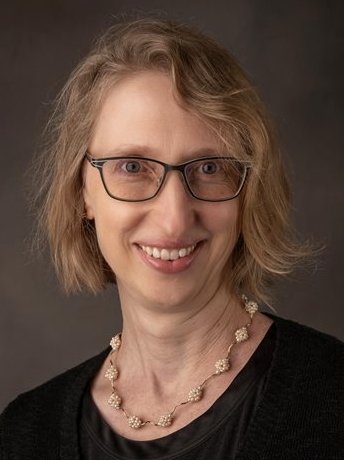 Amanda Chunco, Associate Professor of Environmental Studies | Grading and Belonging in STEM
Amanda Chunco, Associate Professor of Environmental Studies | Grading and Belonging in STEM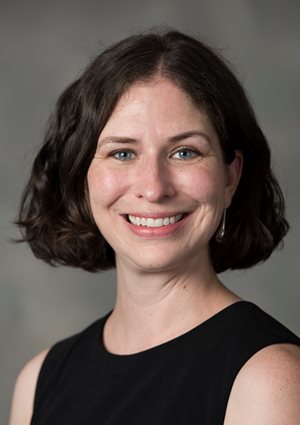 Erin Pearson, Assistant Professor of English | Connecting Literature and Professional Programs to Increase Student Motivation and Success
Erin Pearson, Assistant Professor of English | Connecting Literature and Professional Programs to Increase Student Motivation and Success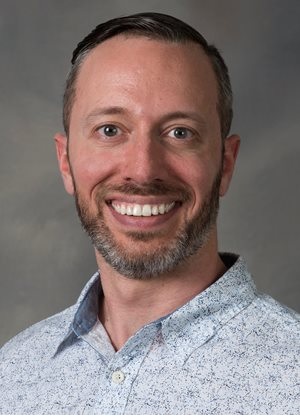 Chris Richardson, Associate Professor of Astrophysics | Active Learning Resources for Large-Scale Phenomena in Upper-Level Astronomy Courses
Chris Richardson, Associate Professor of Astrophysics | Active Learning Resources for Large-Scale Phenomena in Upper-Level Astronomy Courses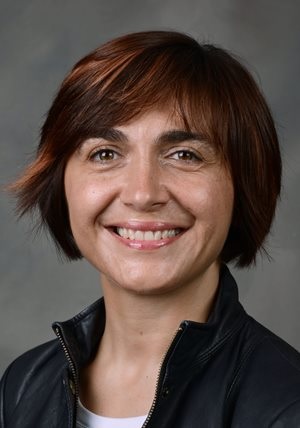
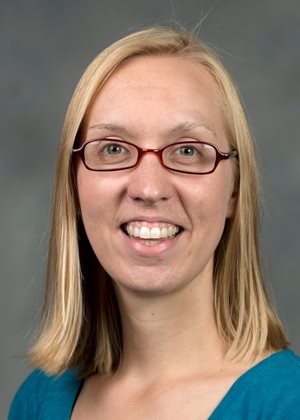
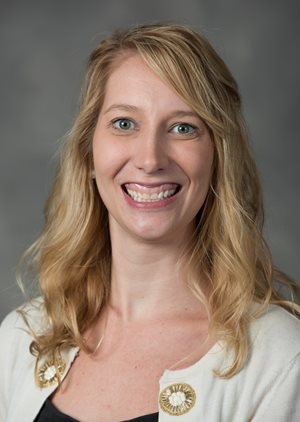 Katie Baker, Assistant Professor of Education | Exploring Co-Teaching in Higher Education
Katie Baker, Assistant Professor of Education | Exploring Co-Teaching in Higher Education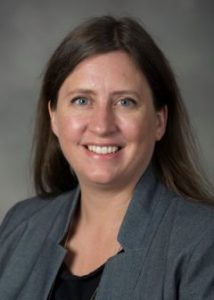
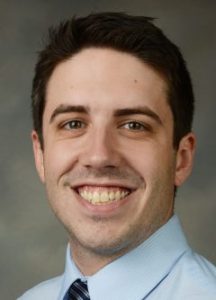 Andrew Greenland, Assistant Professor of Economics | Teaching Replicable Research in Business and Economics with a Programming Rosetta Stone
Andrew Greenland, Assistant Professor of Economics | Teaching Replicable Research in Business and Economics with a Programming Rosetta Stone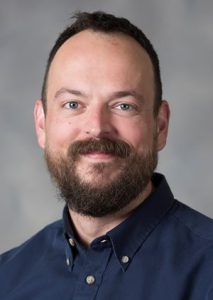 Kevin Bourque, Assistant Professor of English | Rearticulating the relevance of literature: making Elon’s literature curriculum a national model
Kevin Bourque, Assistant Professor of English | Rearticulating the relevance of literature: making Elon’s literature curriculum a national model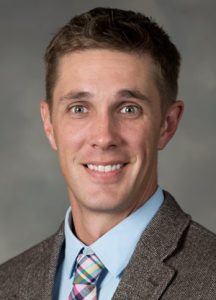 Brandon Sheridan, Assistant Professor of Economics | Perception vs. Reality: An Objective Approach to Quantifying the Amount of Active Learning that Occurs in College Classrooms
Brandon Sheridan, Assistant Professor of Economics | Perception vs. Reality: An Objective Approach to Quantifying the Amount of Active Learning that Occurs in College Classrooms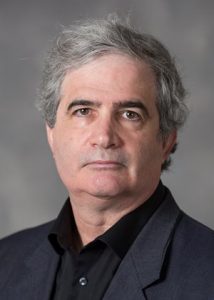
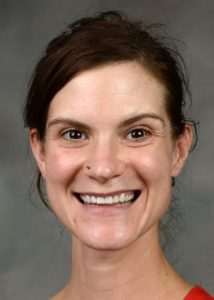 Renay Aumiller, Assistant Professor of Dance | Teaching Modern Dance Technique through Student-Faculty Partnerships
Renay Aumiller, Assistant Professor of Dance | Teaching Modern Dance Technique through Student-Faculty Partnerships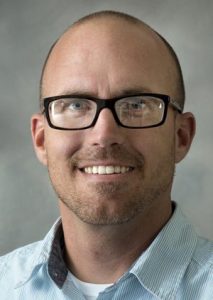 Scott Morrison, Assistant Professor of Education | Learning to Teach With/In Nature: From School Gardens to Forest Schools
Scott Morrison, Assistant Professor of Education | Learning to Teach With/In Nature: From School Gardens to Forest Schools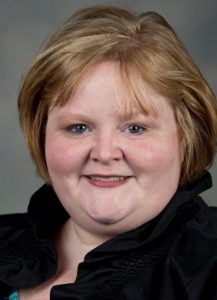
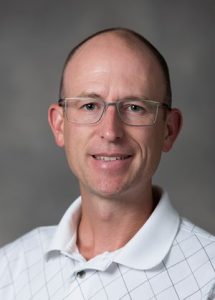 Shannon Duvall, Associate Professor of Computing Sciences &
Shannon Duvall, Associate Professor of Computing Sciences &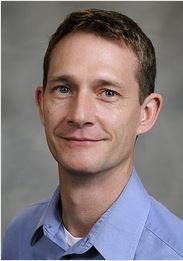 Scott Windham, Associate Professor of German | Redesigning Grammar Instruction and Testing to Support Second Language Literacy
Scott Windham, Associate Professor of German | Redesigning Grammar Instruction and Testing to Support Second Language Literacy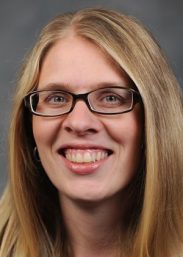 Alexis Franzese, Assistant Professor of Sociology | Enhancing Student and Faculty Engagement and Well-Being: Bringing Contemplative Pedagogy and Positive Psychology into the Elon University Classroom
Alexis Franzese, Assistant Professor of Sociology | Enhancing Student and Faculty Engagement and Well-Being: Bringing Contemplative Pedagogy and Positive Psychology into the Elon University Classroom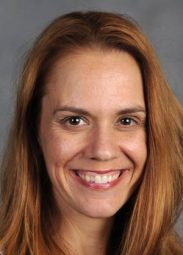
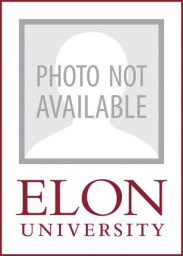
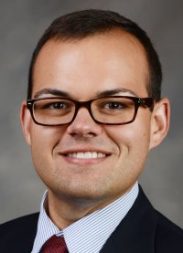
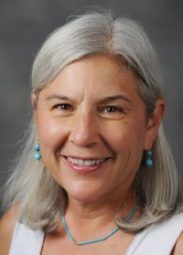
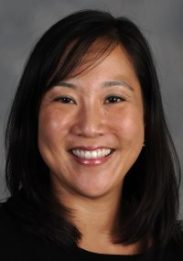

 Omri Shimron, Associate Professor of Music | Faculty-Student Collaboration in the Development and Implementation of Inverted-Classroom Methodologies for a Core Music Theory Sequence
Omri Shimron, Associate Professor of Music | Faculty-Student Collaboration in the Development and Implementation of Inverted-Classroom Methodologies for a Core Music Theory Sequence
 Kathy Lyday, Professor of English &
Kathy Lyday, Professor of English &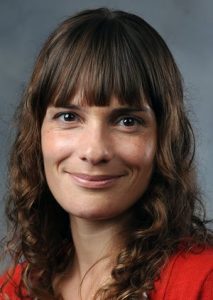


 Mary Knight-McKenna, Associate Professor of Education &
Mary Knight-McKenna, Associate Professor of Education &


















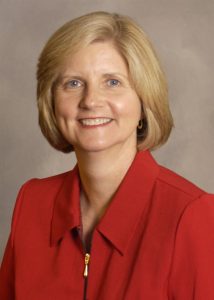 Cynthia Fair, Associate Professor of Human Services &
Cynthia Fair, Associate Professor of Human Services & Sirena Hargrove-Leak, Assistant Professor of Engineering |
Sirena Hargrove-Leak, Assistant Professor of Engineering | 



